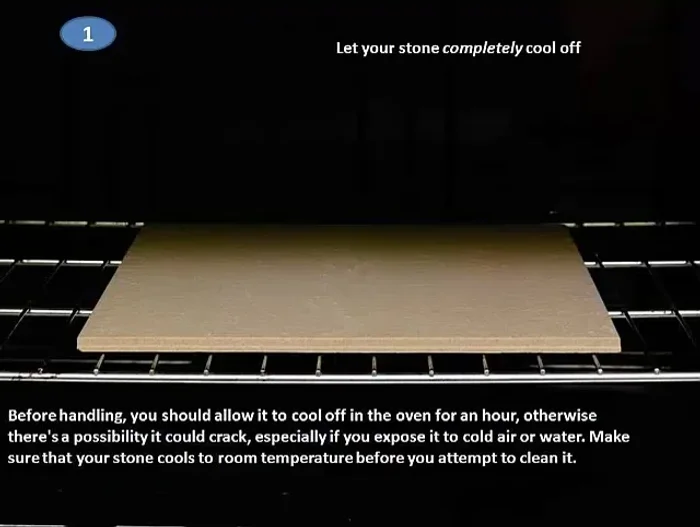Pizza stones: the secret weapon for achieving that perfect, crispy crust. But after a few delicious pies, your once-pristine stone can look a little… well, less than pristine. Burnt-on cheese, stray sauce splatters, and the lingering scent of pepperoni – it's a testament to countless pizza nights, but it's also a call for a thorough cleaning. Ignoring the grime isn't just unsightly; it can actually affect the flavor and texture of future pizzas, not to mention potentially damage your beloved stone. Cleaning a pizza stone properly might seem daunting, but it’s easier than you think.
This guide will equip you with everything you need to know to maintain your pizza stone, ensuring many more years of perfectly crisp pizzas. We'll cover everything from simple daily cleaning to tackling those stubborn, baked-on messes. Ready to learn the secrets to keeping your pizza stone in top shape? Let's dive into our step-by-step cleaning process that will leave your stone sparkling and ready for its next culinary adventure.
Preparation and Safety Guidelines
- Pizza stone
- Blunt tool or brush
- Plastic spatula
- Damp washcloth
- Warm water
- Never use soap or detergent on your pizza stone. The porous nature of the stone will absorb these, affecting the taste of your future pizzas and potentially damaging the stone.
- Always allow the pizza stone to cool completely before cleaning. Sudden temperature changes can cause cracking.
- Avoid abrasive cleaners or scouring pads. These will scratch the surface and ruin the stone's ability to properly cook pizzas.
Step-by-Step Instructions
Cool Down the Stone
- Let the pizza stone cool completely before handling. Allow it to cool in the oven for about an hour to prevent cracking.

Cool Down the Stone Scrape Off Food Residue
- Use a blunt tool or brush to scrape off stuck-on food. A stone brush or plastic spatula works well. Scrape gently to avoid damaging the stone.

Scrape Off Food Residue Wipe with Damp Cloth
- Wipe the stone with a damp cloth. Dampen a washcloth with warm water and wipe down the stone to remove any loosened food particles.

Wipe with Damp Cloth Soak (Last Resort)
- As a last resort, soak the stone in water. Let it dry completely before using it again.

Soak (Last Resort)
Read more: Pizza Stone vs. Baking Steel: The Ultimate Home Pizza Bake-Off!
Tips
- Never use soap on your pizza stone. Soap can penetrate the pores and ruin the stone, affecting the taste of your food.
- Avoid putting oils on the stone.
- Embrace discoloration. A well-used pizza stone with dark areas is normal and doesn't indicate it needs replacing. It actually improves over time.




